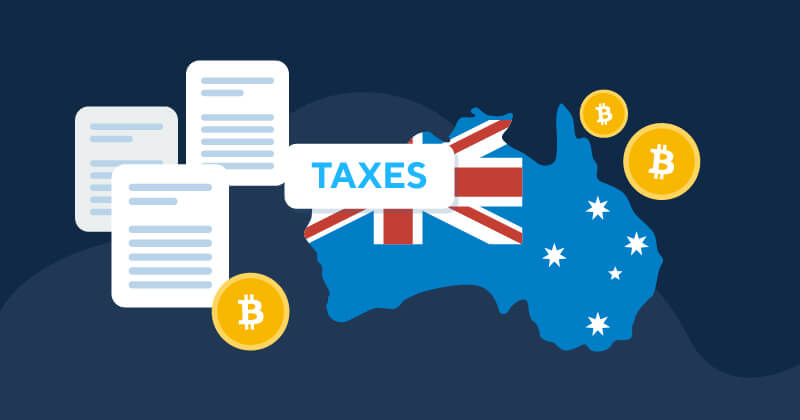Users are encouraged to voluntarily report any income or capital gains associated with cryptocurrencies such as Bitcoin, NFTs, and utility tokens since the UK government has become stricter with unpaid crypto taxes. The Treasury has recommended cryptocurrency users in the UK to report their earnings to prevent penalties.
The UK Treasury has announced plans to simplify crypto tax UK compliance in the rapidly expanding digital asset market. As a result, those who invest in cryptocurrency should carefully monitor their profits. Crypto enthusiasts in the UK have 30 days to report any unpaid taxes on digital assets to the authorities.
|
|
Capital gains | Trading income | Employment income | Miscellaneous income | Not taxable |
| Tax | Capital gains tax | Income tax | Income tax | Income tax | N/A |
| National Insurance | N/A | Class 2/4 | Employee class 1* | N/A | N/A |
| Relevant tax allowances | Annual exempt amount | Personal allowance, trading, and miscellaneous income allowance | Personal allowance | Personal allowance, trading, and miscellaneous income allowance | N/A |
| Tax | Capital gains tax | Income tax | Income tax | Income tax | N/A |
Is Cryptocurrency Subject to Taxation?
Most cryptocurrency investors agree. The restrictions include several exceptions. Most big banks and financial institutions don’t consider crypto money. Financially, crypto assets are taxed like shares. Crypto investors and traders must keep up with the wide range of transactions, from buy and sell orders to hard forks, airdrops, staking, and more.
The cryptocurrency market is growing at a dizzying rate, and with it, the tax situation. A new asset class has emerged: cryptocurrency-like gaming and gambling platforms. These platforms use non-fungible tokens and hybrid tokens designed for specialized uses. There may be preferential crypto tax UK treatment for you if you do not qualify as a UK tax resident or if your residence is outside the UK.
How Does UK Taxation Apply to Cryptocurrencies?
Two primary forms of taxes apply to cryptocurrency in the UK:
Capital Gains Tax
The following types of cryptocurrency transactions are subject to capital gains tax:
- Cryptocurrency for Sale – The profit you make when the price of the cryptocurrency you bought goes up instead of down.
- Trading – Exchanging one sort of cryptocurrency for another.
- Services and Goods – Buying things using different digital currencies.
- Gifting – Sharing cryptocurrency with anybody other than a spouse or civil partner is prohibitive.
Based on the specifics of the transaction, Decentralized Finance (DeFi) transactions may be subject to income or capital gains taxes.
When you sell or give away cryptocurrency, the IRS usually considers it a capital gain. It is more likely to be considered income tax if you buy crypto in UK. However, income tax rules are supreme if your actions are deemed to be a transaction.
Income Tax
In some cases, cryptocurrency may be subject to income tax:
- Employment – Getting cryptocurrency as a salary from your job.
- Mining – Making money by participating in cryptocurrency mining.
- Staking – Getting paid to stake cryptocurrency.
- Airdrops – In certain cases, getting cryptocurrency via airdrops is the way to go.
- Earnings from DeFi – Profits made from several DeFi operations.
Tax-Free Cryptocurrency Transactions
You may not have to pay taxes on every single cryptocurrency transaction. The following are examples of typical situations in which taxes do not normally apply:
- Purchasing Cryptocurrency with Fiat Currency – Buying cryptocurrency using fiat currency, such as GBP, does not incur taxes.
- Holding Crypto – You won’t owe any taxes on your cryptocurrency holdings if you just hold onto them and don’t do anything with them.
- Transfers Between Own Wallets – You are exempt from paying taxes when you transfer cryptocurrency between your wallets.
- Giving Crypto for Charitable Causes – You may be able to avoid paying taxes on cryptocurrency donations made to registered charities.
- Giving Crypto to Spouse – It is not considered a taxable activity to transfer cryptocurrency to a spouse or civil partner.
Do You Know If HMRC Can Monitor Cryptocurrency?
Of course – HMRC is able to track cryptocurrencies. To monitor cryptocurrency transactions and identify investors who are evading taxes, HRMC uses data collected from platforms like crypto.com.
- All UK exchanges participate in HMRC’s data-sharing scheme.
- Data on cryptocurrency transactions has been available to HMRC since 2014.
- If you enrolled for the best UK crypto exchange or wallet, HMRC has access to the Know Your Customer details you provide.
HMRC asked cryptocurrency holders to report overdue taxes in a news release voluntarily. The tax agency’s new website lets investors submit crypto tax due. Investing without HMRC notification may result in penalties and interest.
As the UK prepares to exchange cryptocurrency transaction data with Europe under CARF law, HMRC is focusing more on crypto taxes and unreported bitcoin profits.
Whether you’ve been reasonably careful with your taxes or intentionally misled, HMRC determines how far back they will go to find unreported gains:
- You must reveal and pay any taxes owed over the preceding four years if you have reasonably reported your cryptocurrency taxes but have yet to pay enough.
- You are required to pay HMRC the amount you owe for up to six years if you were careless with the disclosure of your cryptocurrency profits.
- If you knowingly mislead HMRC on bitcoin earnings or income and purposefully fail to pay enough tax, you must declare and pay any taxes for 20 years.
What Is the UK Tax Rate for Cryptocurrency?
Capital gains tax
Cryptocurrency buyers, sellers, and holders are often liable to CGT since they are engaging in investment activity.
When you sell your cryptocurrency, you’ll trigger a tax event, and you’ll have to pay taxes on the amount of your sale in the following sequence:
- The same-day acquisition of cryptocurrency assets.
- Crypto assets bought in the next 30 days.
- The average price of all mismatched crypto assets (referred to as the pool).
Gains over a £6,000 yearly tax-free threshold are subject to capital gains tax.
After this deduction, capital gains are subject to a 10% tax rate up to the basic rate band and a 20% tax rate for earnings in the extra and higher tax bands.
Income tax
Anyone involved in a cryptocurrency trade—whether you sell, receive, or buy crypto in UK —is often subject to income tax.
A day trader buys and sells crypto assets to make a profit. Since account traders do not meet the income tax definition of a trader, they may be liable to capital gains tax.
Trading involves purchasing and selling crypto assets with the purpose, competence, frequency, and organization of a financial transaction.
When your earnings reach a certain level, you’ll have to pay taxes on them at rates of 20%, 40%, or 45% (depending on your tax bracket), plus 10% or 2% for national insurance.
Crypto income is subject to income tax in the UK, ranging from 0% to 45% based on the tax band in Wales, England, and Northern Ireland; in Scotland, there are two additional bands, a 19% beginning rate and a 21% intermediate rate, so any crypto income you make will be taxed.
How Can I Determine Whether My Crypto Transactions Were a Gain or Loss?
Gain or loss calculation skills are essential when dealing with cryptocurrency trades. Your profit or loss statement will include three sections:
- Cost Basis – Your cost basis is the cryptocurrency’s buying price plus costs. When paying income tax on cryptocurrency gained by staking or mining, the cost basis is the coin’s value upon receipt. From the selling price, subtract this amount to determine your profit or loss.
- Sale price – Tell the current market worth of your cryptocurrency or the value it had when you decided to sell it.
- Fees – You may add fees to the cost base of acquired cryptocurrency or subtract them from sales transactions. You may reduce your tax liability in this way.
In the best UK crypto exchange, things do become a little more complicated when fees are included. Since this includes buying and selling, it is more complicated. Although the cost may be deducted from both purchases, it is only valid for one usage.
Case Study
One of the first UK accountants to establish a firm focused on cryptocurrency taxes was Mohammed Shukry, proprietor of www.mycryptotax.co.uk. After exploring other alternatives, he settled on Koinly as the most intuitive platform with superior capabilities and integrations. Since then, he has been an outspoken supporter of the Koinly platform, promoting it to colleagues and customers.
Like many other crypto accounting firms, MyCryptoTax struggled with the time and effort required to handle transactional data manually. This prevented them from expanding their client base and led to a buildup of billable hours that prevented them from accurately taking more transactions.
After experimenting with competing cryptocurrency tax solutions, MyCryptoTax settled on Koinly for its intuitive interface, automated API integration with major blockchains and exchanges, and time savings for staff. As a result, the firm’s monthly client acquisition and revenue were boosted by more than 100%.
Conclusion
The UK government plans to include a section for self-assessment tax return forms for crypto investors. The Financial Times reports that this proposal will simplify cryptocurrency reporting for individuals and trusts in 2024-25. They aim to make it easy for tax authorities to cross-reference client information and decrease the investment risk of missing reporting requirements.






